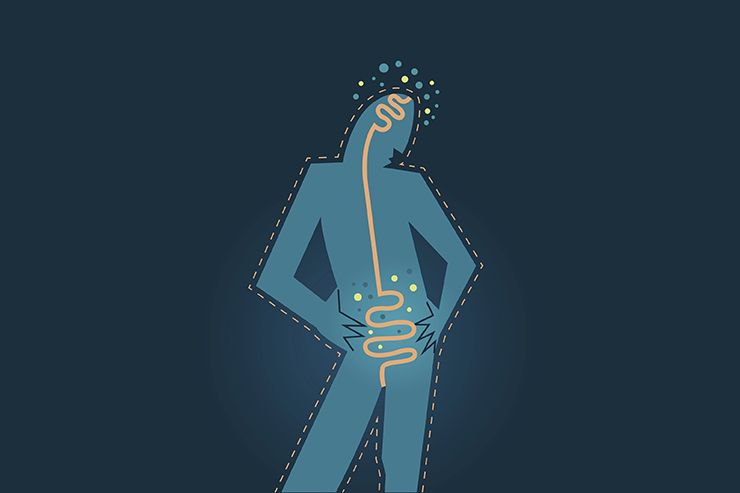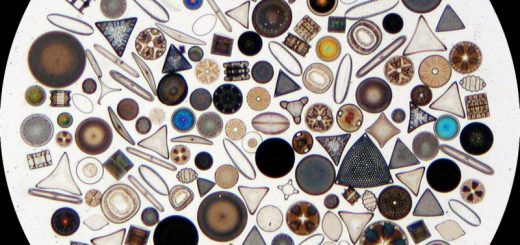Gut feelings: The microbes involved in our mental health

Normally, around 1014 (one hundred trillion) microorganisms live in our gut, supporting our health in many ways, from providing essential vitamins to helping our immune systems develop1. However, unhealthy diets, lack of exercise and increases in experienced stress can threaten microbial populations. The disrupted gut microorganisms balance, called ‘dysbiosis’, may be affecting our well-being more than previously thought2.
Research on animals suggests that a two-way communication pathway exists along the “gut-brain axis”. Unbalanced gut microorganisms can affect our brain, and our mental health can also change neuronal networks that ultimately impact the composition of microbes in our gut. For example, administering the bacterium Lactobacillus Plantarum reduced anxiety levels and behaviours typically associated with depression in mice, and increasing the concentration of serotonin, the ‘happiness neurotransmitter’, in the brain3. Similar studies are identifying various bacteria strains associated with improvement in mood, depression and anxiety, highlight the importance of gut microbes for our mental health4.
Being subjected to prolonged stress affects the variety of the “good” microbes inhabiting our gut. In fact, even 2 hours exposure to stressors can influence the diversity and abundance of beneficial gut microorganisms in mice5. However, it is not yet clear what the long-term influences of stress on microorganism populations are.
Findings from animal studies should be taken with a grain of salt, as translation of complex conditions such as depression from mice to humans is often tricky6. Human studies on the communication between the gut and brain do exist, but they are often limited by small samples and a taxonomic approach (based on the classification of microorganism strains). This means they investigate which families of microbes are observed in a specific mental health condition. Whilst this can provide insights into which strains of bacteria are more important for a healthy brain, it does not show how they influence mental health.
Valles-Colomer’s 2019 study has provided the largest population-based evidence of a relationship between gut microbiota and mental health to date7. Instead of the taxonomic approach, a metagenomic approach was adopted which analyses the shared genetic material of microbes and the human host 8. This approach helps pinpoint which specific strains of bacteria are linked to mental health based on their ability to process substances in the gut which can influence our brain.
The analysis was conducted on faecal microbes from 1,054 participants who completed a quality of life questionnaire. Two strains were particularly abundant in individuals with higher quality of life scores and depleted in participants with depression. Importantly, the researchers found differences in microbiome composition according to whether participants were undergoing antidepressant treatment or not, suggesting that medication can also alter gut microbiota7.
Using a new approach, this study highlights which gut bacteria are potentially important for our mental health, while accounting for the role of antidepressants. Hopefully, research in the new decade learns from this and further explores this link between our mental health and gut microbiota – watch this space!
Edited by Frankie Macpherson
References
- https://theconversation.com/gut-feeling-how-your-microbiota-affects-your-mood-sleep-and-stress-levels-65107/
- https://physoc.onlinelibrary.wiley.com/doi/full/10.1113/JP273106
- https://www.sciencedirect.com/science/article/pii/S0006899315008628
- https://www.sciencedirect.com/science/article/pii/S1021949819300158#bib35
- https://www.ncbi.nlm.nih.gov/pmc/articles/PMC4105248/?report=reader
- https://www.sciencedirect.com/science/article/pii/S0889159116305207
- https://www.nature.com/articles/s41564-018-0337-x
- https://www.news-medical.net/life-sciences/What-is-Metagenomics.aspx











1 Response
[…] Writing for the Glasgow Insight into Science & Technology (GIST), Carolina Guidolin reports: […]